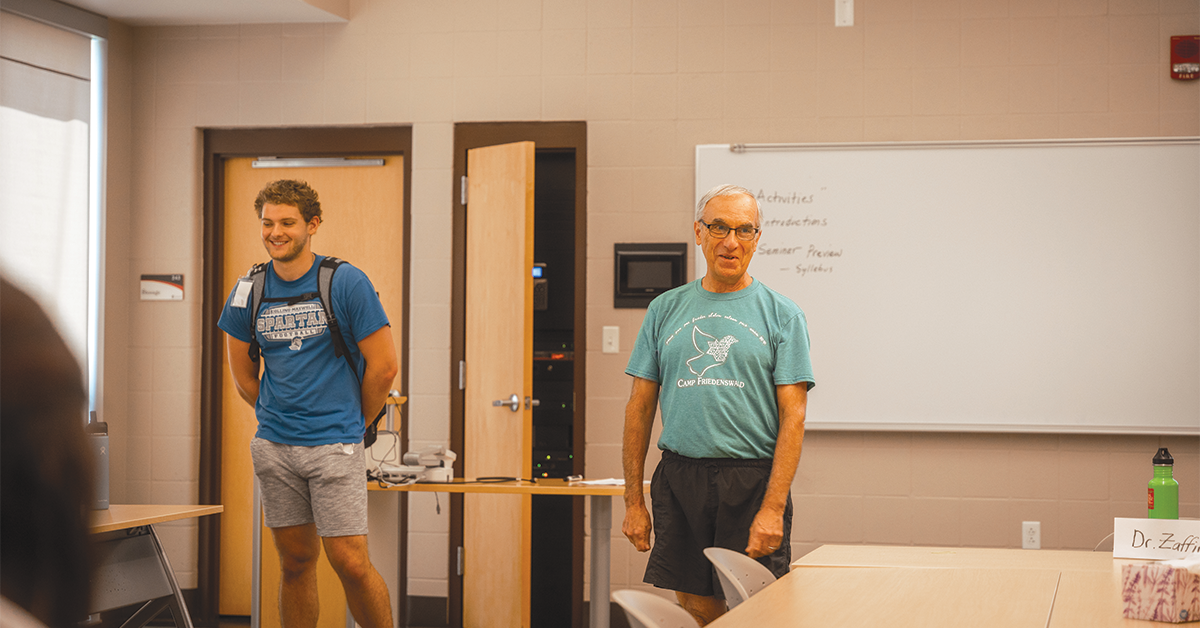
Jim Zaffiro, professor of political science, right, welcomed the Class of 2027 on the first day of classes under the new Engaged Citizenship integrated learning model to prepare students for careers and success in the future.
A new academic year brings about a great deal of excitement, new opportunities, a clean slate and so much more. This fall, Central College implemented a new Engaged Citizenship core curriculum impacting the newest members of the Central family, the Class of 2027.
The realization that the core curriculum had not been reviewed or majorly updated in 20 years and overwhelming approval from leadership brought on several years of research, discussions, planning and tweaking, all of which led to its triumphant launch.
At Central, an engaged citizen represents responsible membership in the communities to which we each belong (Central included) and has three essential features: relationships, reflection and responsibility.
Faculty-Led
During the period of preparation, Jim Zaffiro, professor of political science, was the chair of two ad hoc committees and a designated point person for the Academic Planning Committee. Zaffiro credits multiple ad hoc committees with heavy lifting as APC has many responsibilities from year to year. As many as 50 faculty volunteers played a role in this work which allowed for broad representation and overwhelming faculty buy-in.
“The whole process has been widely shared across faculty,” Zaffiro says. “The administration and senior leadership have been supportive all along, but it’s been a faculty-led endeavor.”
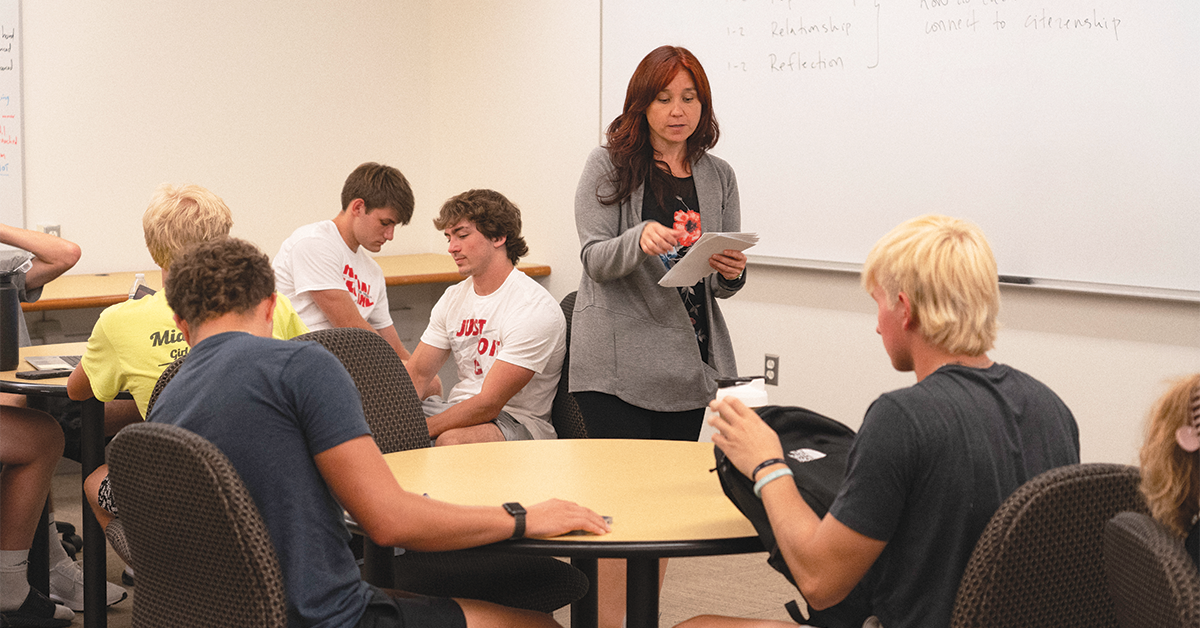
Paulina Mena, professor of biology and faculty fellow for diversity and inclusion, met with students on the first day of classes to discuss the three pillars of being an engaged citizen — relationships, reflection and responsibility.
Tools for Success
“Civitas I, the first-year course, revolves around common first-year experiences and the kinds of tools we can give students for college success,” Zaffiro says. Some elements of previous first-year courses like Intersections are integrated, but it’s a lot more free-standing.
“The big change here is we have a unified narrative that will carry through, but we’re also working on those basic college success and career skills in that context,” Zaffiro explains.
There are some commonalities from course to course, but faculty are approaching the course from different perspectives. “Some of the ideas focus on respectful dialogue, feeling like this is a community in which you not only belong but also in which you want to belong and with those rights come responsibilities.”
Elements of the new core include Civitas I and II courses as well as courses in citizenship, written and oral communication, exploration and language. This new model has fewer requirements than the previous core and provides students with flexibility to do more, like dive deeper within their major. They can also pick up an additional major or minor, go outside their comfort zone to explore more courses and try new things all the while progressively developing their skills.
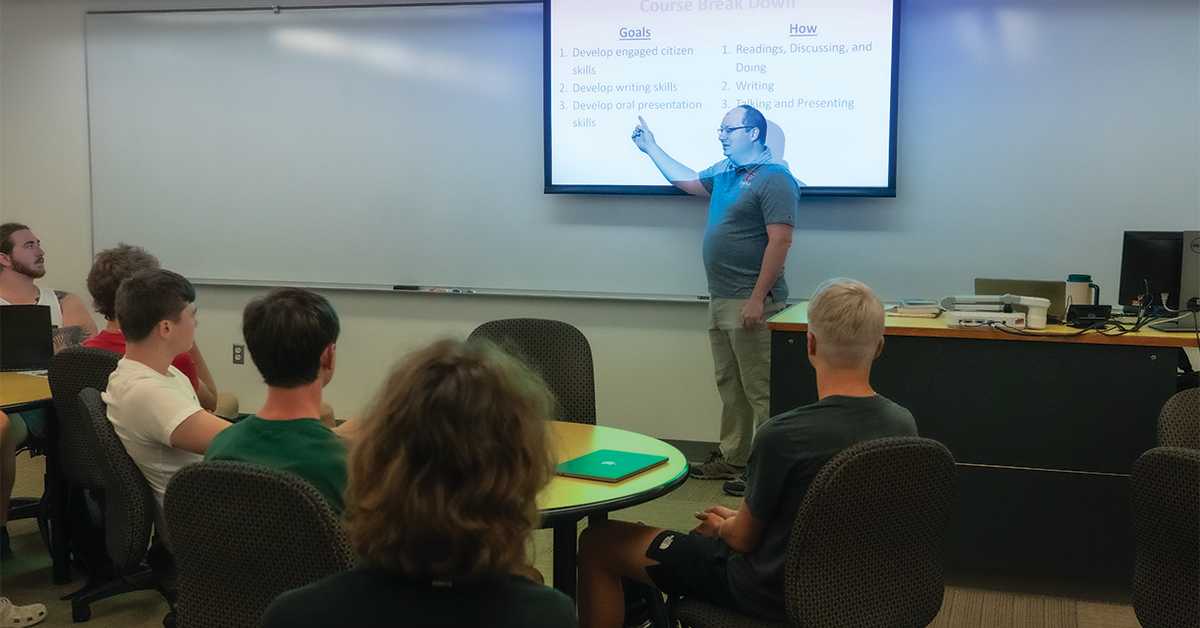
Lee Macomber, associate professor of biology, reviewed the expectations for the Class of 2027 and how they will develop their course schedules using the Engaged Citizenship plan.
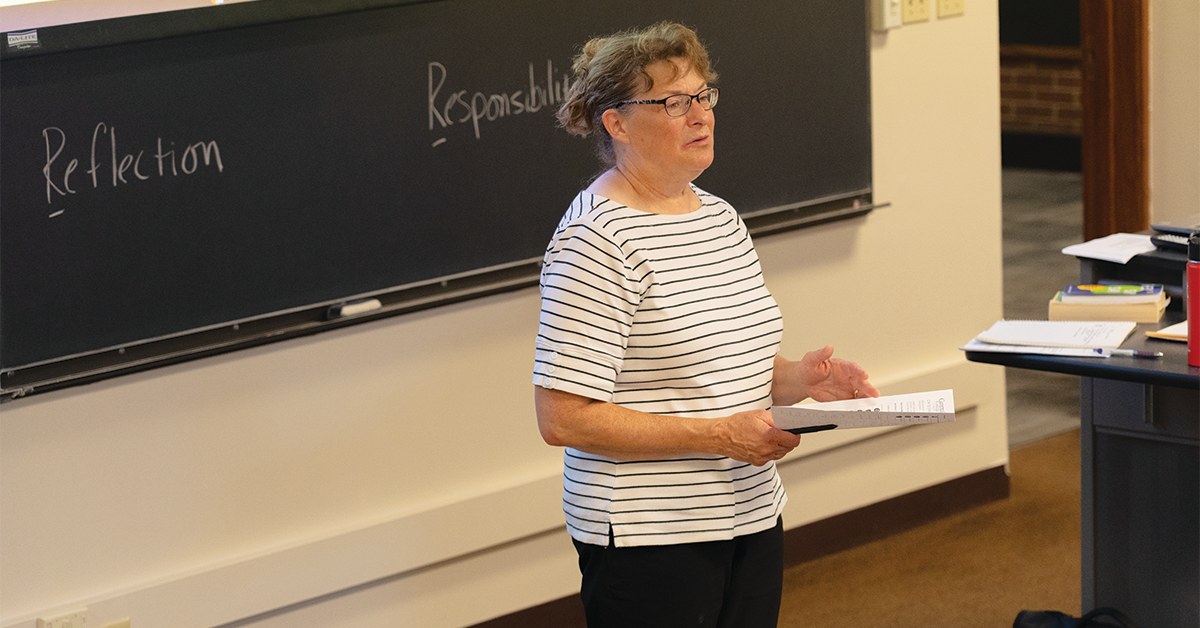
Lori Witt, Kenneth J. Weller Distinguished Professor of the Liberal Arts and associate professor of history, introduced students to the Engaged Citizenship core value of responsibility in college, community and the world.
Why Now? Why This?
The change addresses an issue facing all of higher education: Making core curriculum, graduation requirements and the overall college experience more relevant.
“This kind of core narrative is going to be very powerful in terms of preparing students to go out and be responsible members of their communities who serve and contribute rather than crossing things off and saying, ‘Ok, now I can graduate because I checked all the boxes,’” Zaffiro explains.
“A narrative core is something Central has never done and isn’t exactly something many colleges do but our goal is to connect the college with the wider world.”
Students don’t usually look at a college because of their core curriculum but Central very well may be changing that.
“It’s about preparing students for the world they’re going to live in,” Zaffiro adds. “In an age when we have polarization, anger and violence, this is our way of articulating our mission for the next generation of college students. Now we have a core that reflects who we are and deliberately tries to accomplish our mission of preparing graduates for service in their communities.”
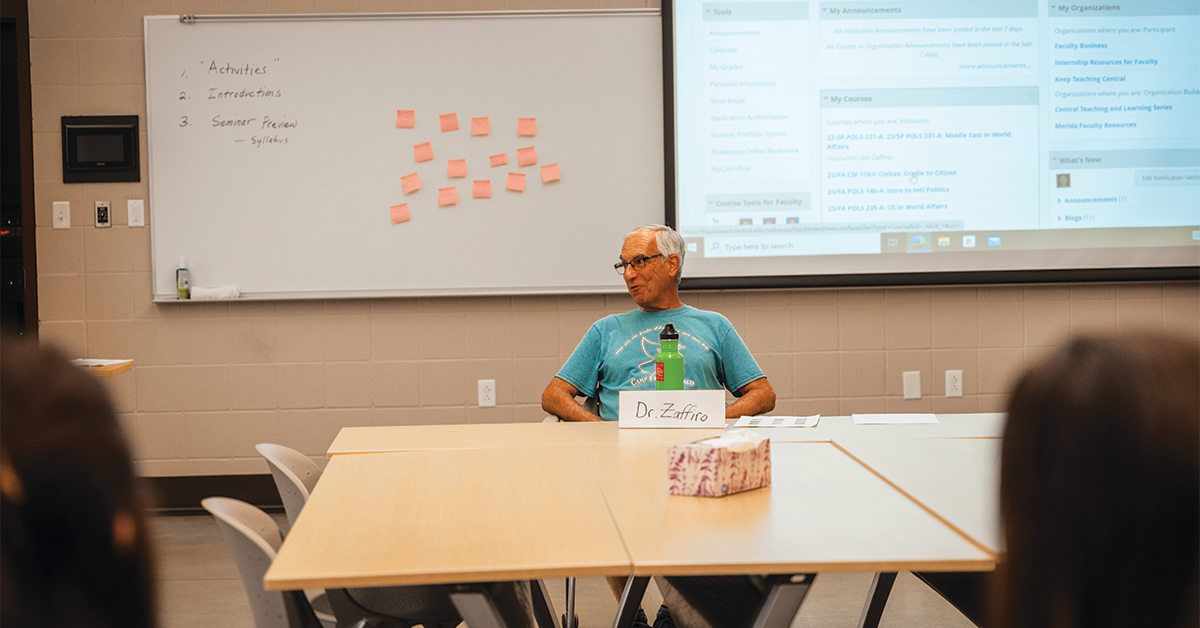
Jim Zaffiro, professor of political science, who chaired two committees developing the new course requirements, reviewed the expectations for students in his section of Civitas I, the course all first-year students take at Central.
A Look Ahead
Over the course of the next four years, the new core will impact the entire student body and there’s a lot of excitement around it.
“Faculty are excited it’s here and happening,” Zaffiro says. “Many already feel that it’s better than what we had been doing for a lot of reasons. Some of the current students are even asking if they can switch their core to the new one and take these courses! To hear such interest is incredibly positive.”
Central has been a leader in higher education in many ways over the course of its 170-year history. Developing this Engaged Citizenship core curriculum is no different. Stay tuned for all the good this change will do for our communities and our world.
Artwork By: Melody Vanderleest
Photos By: Dustin Dawson












To encourage serious, intellectual discourse on Civitas, please include your first and last name when commenting. Anonymous comments will be removed.
Comments are closed.